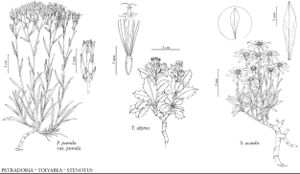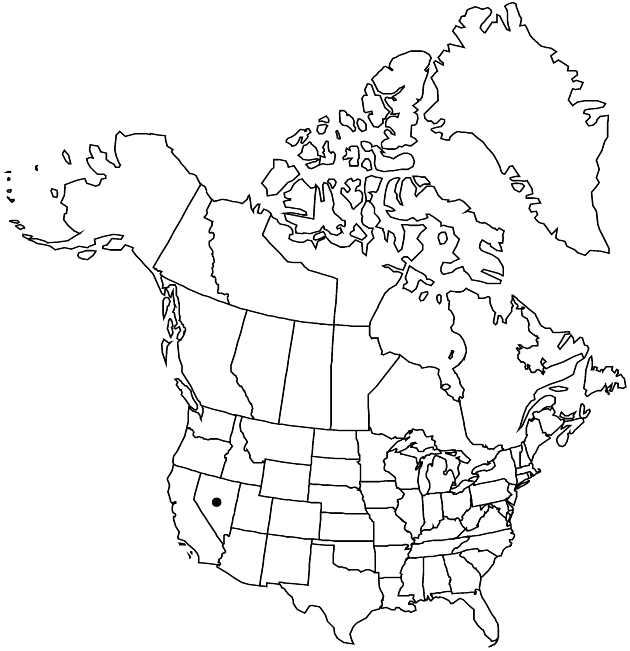Toiyabea alpina
Sida 21: 1653. 2005.
Common names: Alpine serpentweed
IllustratedEndemicConservation concern
Basionym: Haplopappus alpinus L. C. Anderson & Goodrich Great Basin Naturalist 40: 73, figs. 1, 3. 1980
Synonyms: Tonestus alpinus (L. C. Anderson & Goodrich) G. L. Nesom & D. R. Morgan
Treatment appears in FNA Volume 20. Treatment on page 173.
Revision as of 20:48, 27 May 2020 by imported>Volume Importer
Leaves ascending to spreading, blades 30–70 × 8–36 mm, bases attenuate to cuneate, clasping (more so in distal leaves), apices acute to attenuate; cauline ± sessile, reduced distally. Disc florets: corollas 5.8–7.6 mm, lobes 1–1.6 mm; anthers yellow, ca. 2.6 mm; style branches 1.8–2.5 mm, stigmatic lines nearly as long as appendages, appendages 1.2–1.7 mm. Cypselae 4–5 mm; pappi 6–7 mm. 2n = 18.
Phenology: Flowering mid summer–fall.
Habitat: Rocky terrain near and above treeline
Elevation: 2500–3500 m
Discussion
Of conservation concern.
Toiyabea alpina is found in the Toiyabea and Toquima mountains of southern Nevada.
Selected References
None.
Lower Taxa
None.

